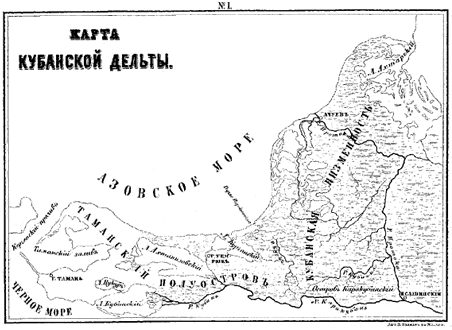Bikhakhanim on:
[Wikipedia]
[Google]
[Amazon]
 Bikhakhanim (d. after 1419), was the reigning princess of a small
Bikhakhanim (d. after 1419), was the reigning princess of a small
 Bikhakhanim (d. after 1419), was the reigning princess of a small
Bikhakhanim (d. after 1419), was the reigning princess of a small polity
A polity is a group of people with a collective identity, who are organized by some form of political Institutionalisation, institutionalized social relations, and have a capacity to mobilize resources.
A polity can be any group of people org ...
located on the Taman Peninsula in southern Russia
Russia, or the Russian Federation, is a country spanning Eastern Europe and North Asia. It is the list of countries and dependencies by area, largest country in the world, and extends across Time in Russia, eleven time zones, sharing Borders ...
.
She may have been of Circassian, Georgian, or Cuman
The Cumans or Kumans were a Turkic nomadic people from Central Asia comprising the western branch of the Cuman–Kipchak confederation who spoke the Cuman language. They are referred to as Polovtsians (''Polovtsy'') in Rus' chronicles, as " ...
origin. The Russian historian F. K. Brun, suggests that the name of the princess might not have been "Bikhakhanim," but "Bikhakhatun," and that, if so, she was the daughter of the Georgian prince Beka II Jakeli (died 1391), the ruler of Samtskhe
Meskheti ( ka, მესხეთი ) or Samtskhe ( ka, სამცხე ), also known as Moschia in ancient sources, is a mountainous area in southwestern Georgia.
History
Ancient tribes known as the Mushki (or Moschi) and Mosiniks (or Mo ...
and Klarjeti
Klarjeti ( ka, კლარჯეთი ) was a province of ancient and medieval Georgia, which is now part of Turkey's Artvin Province. Klarjeti, the neighboring province of Tao and several other smaller districts, constituted a larger region ...
.Brosset ii. 206.
However, "Beki" means "Ruling Woman" in Mongolian
Mongolian may refer to:
* Something of, from, or related to Mongolia, a country in Asia
* Mongolian people, or Mongols
* Bogd Khanate of Mongolia, the government of Mongolia, 1911–1919 and 1921–1924
* Mongolian language
* Mongolian alphabet
* ...
and "Khanim" was the Medieval title of a female patrilineal descendant of Genghis Khan (equivalent to "Khan" for a male). 1419 was the year that the sons of Tokhtamysh
Tokhtamysh ( Turki/ Kypchak and Persian: توقتمش; ; ; – 1406) was Khan of the Golden Horde from 1380 to 1395. He briefly succeeded in consolidating the Blue and White Hordes into a single polity.
Tokhtamysh belonged to the House of Bo ...
Khan
Khan may refer to:
* Khan (surname), including a list of people with the name
* Khan (title), a royal title for a ruler in Mongol and Turkic languages and used by various ethnicities
Art and entertainment
* Khan (band), an English progressiv ...
of the Golden Horde
The Golden Horde, self-designated as ''Ulug Ulus'' ( in Turkic) was originally a Mongols, Mongol and later Turkicized khanate established in the 13th century and originating as the northwestern sector of the Mongol Empire. With the division of ...
killed his rival Edigu
Edigu (also Edigey, Eðivkäy or Edege Mangit; 1352–1419) was a Turko-Mongol emir of the White Horde who founded a new political entity, which came to be known as the Nogai Horde.
Life
Edigu was from the Crimean Manghit tribe, the son of ...
the Khan of the Nogai Horde
The Nogai Horde was a confederation founded by the Nogais that occupied the Pontic–Caspian steppe from about 1500 until they were pushed west by the Kalmyks and south by the Russians in the 17th century. The Mongol tribe called the Manghuds con ...
as a continuation of the Tokhtamysh–Timur war
The Tokhtamysh–Timur war was fought from 1386 to 1395 between Tokhtamysh, the khan of the Golden Horde, and the warlord and conqueror Timur, founder of the Timurid Empire, in the areas of the Caucasus Mountains, Turkestan and Eastern Europe. ...
and reestablished control over the region.
Bikhakhanim was married in 1419 to the Genoese Jew
Jews (, , ), or the Jewish people, are an ethnoreligious group and nation, originating from the Israelites of ancient Israel and Judah. They also traditionally adhere to Judaism. Jewish ethnicity, religion, and community are highly inte ...
Simeone de Guizolfi, who through this marriage became ruler of that country under Genoese overlordship. One of his heirs, Zacharias de Guizolfi, was still reigning in 1482.
See also
* Gazaria * Ghisolfi *Tmutarakan
Tmutarakan (, ; ) was a medieval principality of Kievan Rus' and trading town that controlled the Cimmerian Bosporus, the passage from the Black Sea to the Sea of Azov, between the late 10th and 11th centuries. Its site was the ancient Greek col ...
Notes
References
* Brosset, Marie-Félicité. ''Hist. de la Géorgie.'' *Brun, F. K. ''Trudy Pervago Archeologickeskago Syezda v Moskve,'' 1869, ii. 386 *Löwe, Richard. ''Die Reste der Germanen am Schwarzen Meere'', p. 42, Halle, 1896. * 15th-century deaths 15th-century women monarchs 15th-century people from Georgia (country) 15th-century women from Georgia (country) Year of birth unknown {{Georgia-hist-stub